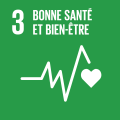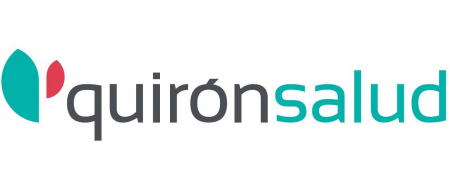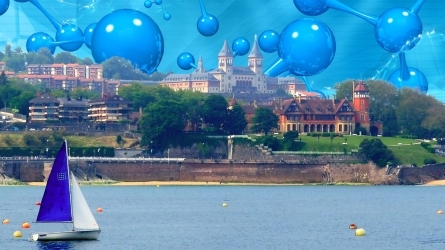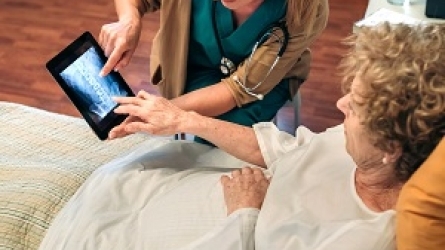
LIVE ONLINE COURSE - New technologies for personalized medicine in the elderly
Description
The official languages of the Course are Basque, Spanish and English. There will be not a translation service.
The SMART BEAR DT-TDS-01-2019 project, “Smart Big Data Platform to Offer Evidence-based Personalized Support for Healthy and Independent Living at Home”, is an international project with the participation of 27 partners from Italy, Greece, Romania, France, Portugal, the Netherlands, the United Kingdom, the Czech Republic and Spain, whose objective is the development of an intelligent solution for continuous and objective monitoring and intervention, optimizing the management of diseases and associated risks, and offering measurable improvements in the quality of older people's lives and their ability to live independently.
Objectives
Inform and debate about the latest developments in remote care and monitoring of people at risk of fragility through the use of intelligent devices (IoT) and massive data analysis platforms.
Activity directed to
- University student
- Teachers
- Professionals
- All public
- Administración (Municipios, Diputaciones, Gobierno Vasco, Gobierno Central); Organizaciones de pacientes
Program
14-09-2020
Presentation by the Director of the activity
- Joseba Vidorreta Gomez Grupo Hospitalario Quirónsalud - Director Territorial del País Vasco
“Nuevos modelos asistenciales y estrategias innovadoras para una mejor atención sanitaria a las personas mayores“
- Rafael Bengoa Rentería SI Health
“Casos de uso, aspectos de implementación y aplicaciones de tecnología inteligente en salud para personas adultas mayores / Use cases, implementation aspects and applications of technology for smart health in older adults“
- David Cuesta Innovatec Sensorización y Comunicación SL - Director Técnico
- Eleftheria Vellidou Biomedical Eng. Lab, NTUA - Senior researcher at Institute of Communication and Computer Systems
Break
“Medicina personalizada en la atención médica, aspectos clínicos y reclutamiento de personas usuarias finales para pruebas y validación en escenarios reales / Personalized medicine in medical care, clinical aspects and recruitment of end users for tests and validation in real scenarios“
- Rocío Díaz Quirónsalud - Directora de Investigación
- Eleftheria Vellidou Biomedical Eng. Lab, NTUA - Senior researcher at Institute of Communication and Computer Systems
“Neurriko medikuntza osasun zainketan sartzeak dakartzan ondorio etikoak, juridikoak eta sozialak“
- Itziar Alkorta Idiakez UPV-EHU - Zuzenbide Zibileko irakaslea
15-09-2020
Presentation by the Director of the activity
- Joseba Vidorreta Gomez Quirónsalud - Director Territorial en el País Vasco
“Basque Health Cluster: nuevos retos para la promoción y apoyo de proyectos innovadores en torno a la transformación del futuro del envejecimiento en Euskadi“
- María Pascual de Zulueta Legorburu Basque Health Cluster - Directora
“Diseño centrado en las personas usuarias de tecnologías para la salud y el bienestar de las personas adultas mayores: adaptación y escalabilidad de productos y servicios a nivel local e internacional / Design focused on the users of technologies for the health and well-being of older adults: adaptation and scalability of products and services at local and international level“
- Jokin Garatea GAIA - Director del Departamento Internacional
- Eleftheria Vellidou Biomedical Eng. Lab, NTUA - Senior researcher at Institute of Communication and Computer Systems
Break
“Uso de dispositivos inteligentes (IoT) y plataformas de análisis masivo de datos en entornos médicos e implicaciones en los procesos de validación con personas usuarias finales / Use of smart devices (IoT) and massive data analysis platforms in medical environments and implications in the validation processes with end users“
- Eleftheria Vellidou Biomedical Eng. Lab, NTUA - Senior researcher at Institute of Communication and Computer Systems
- Antonio Herrero Quirónsalud - Director de Inteligencia Artificial y Big Data
Closing session
- Joseba Vidorreta Gomez Quirónsalud - Director Territorial del País Vasco
Directors
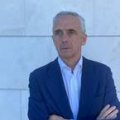
Joseba Vidorreta Gomez
IDCQ Hospitales y Sanidad SLU
Economista, por la Universidad del País Vasco EMBA por el IESE de la Universidad de Navarra. Auditor-Censor Jurado de Cuentas. Master en Gestión Sanitaria por el IESE. Diploma de Suficiencia Investigadora de la Universidad del País Vasco. ACTIVIDAD ACTUAL Director Gerente Territorial de Quirónsalud en el País Vasco ACTIVIDADES PROFESIONALES ANTERIORES 1. EN LA GESTIÓN PRIVADA: Director Gerente del Hospital San Juan de Dios de Santurtzi Director General de Policlínica Guipúzcoa 2. EN EL ÁMBITO DEL ASESORAMIENTO Y CONSULTORÍA: Responsable en Madrid del grupo de Salud y Farmacia de consultoría de Coopers & Lybrand. 3. EN EL SECTOR PÚBLICO: Gerente de los hospitales dependientes de la Comunidad de Madrid (Servicio Regional de Salud ) Funcionario del Gobierno Vasco en la Consejería de Sanidad y en Osakidetza desde Agosto de 1986 hasta Noviembre de 1993.
Speakers
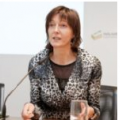
Itziar Alkorta Idiakez
Uda Ikastaroak / Cursos de Verano, Zuzendari akademikoa / Directora académica
She holds a PhD in Law and is a lecturer in Civil Law at the UPV/EHU. Her main line of research is bioethics, a subject on which she has published several monographs and scientific and dissemination articles. She has participated in 4 European research projects of the VI and VII European Framework Programme, as well as in multiple research projects of the National Programme. She has been a visiting professor at the Hastings Center for Bioethics in New York, the Center for Bioethics at the University of Philadelphia and the University of Bordeaux. She was Secretary General of Eusko Ikaskuntza, and later of Jakiunde, Academy of Sciences, Arts and Letters. Vice-rector of quality and teaching innovation at the UPV/EHU between 2008 and 2012, and responsible for the development of the educational model, as well as quality programmes, and training and evaluation of university teaching staff. Between 2013 and 2015, she was Deputy Minister of Universities and Research of the Basque Government.
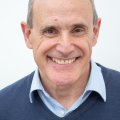
Rafael Bengoa Rentería
SI-Health, Co Director
Rafael Bengoa trained as a doctor at the University of London, where he specialised in Community Health. He has pursued a career at both national and international level. He first made his professional mark in 1991 with several papers on social policy and health management addressed to the Spanish and Basque parliaments (April Report, ESADE Report). He also worked for fifteen years at the World Health Organization, where he headed the Healthcare Systems Directorate until 2007. In 2009 he was appointed minister of healthcare and consumer affairs in the Basque government, where he was in charge of implementing a more sustainable, proactive healthcare model focused on the needs of chronic patients. He is currently co-director, together with Patricia Arratibel, of the Healthcare and Strategy Institute (SIHealth), supporting governments and social and healthcare reforms in different countries. He is a Senior Fellow at Harvard.
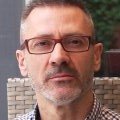
David Cuesta
Doctor Ingeniero en Telecomunicaciones e Ingeniero Técnico en Electrónica Industrial por la Universitat Politécnica de València. Responsable del Grupo de Investigación de Informática Industrial, Comunicaciones y Automática del Instituto Tecnológico de Informática de Valencia. Socio fundador de la empresa tecnológica Innovatec Sensorización y Comunicación S.L., y profesor de la misma universidad en el campus de Alcoy (Alicante). Desde 1996 ha trabajado en temas de investigación relacionados con el procesado y adquisición de registros biomédicos, reconocimiento de patrones, diagnóstico automático, dispositivos médicos, y redes de sensores inalámbricos, con casi 50 publicaciones científicas en este campo, multitud de proyectos nacionales e internacionales dirigidos en esta temática y Ambient Assisted Living, y desarrollos tecnológicos en este mismo campo, llegando a la certificación de un dispositivo médico propio según ISO 13485.

Rocío Díaz
Licenciada en Químicas por la Universidad Autónoma de Madrid, con un Máster en Economía de la Salud de la Universidad Carlos III. Actualmente Directora de Investigación e Innovación del Grupo Hospitalario Quirónsalud. Lleva más de 10 años trabajando en la gestión de la investigación a nivel básico y clínico en diferentes instituciones de prestigio nacional como el Consejo Superior de Investigaciones Científicas (CSIC). Gran parte de su experiencia profesional viene desarrollada en la gestión de proyectos a nivel nacional, europeo e internacional. En sus primeros años, se dedicó también a gestionar proyectos promovidos por la Unión Europea en países como España y Rumanía, y a coordinar redes de trabajo a nivel europeo con participantes de más de 10 nacionalidades distintas.
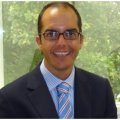
Jokin Garatea
Jokin Garatea, director del departamento Internacional de Gaia, Asociación Cluster TEIC del País Vasco. Es Licenciado en Derecho por la Universidad de Deusto y Diplomado en Economía Comunitaria por el Instituto Hispano-Alemán. Especialista en Comercio Exterior por el Departamento de Economía Aplicada de la Universidad del País Vasco en colaboración con el Gobierno Vasco. Coordinador de Proyectos del Fondo Vasco Aquitano para proyectos de fomento de I+DT de PYMEs del sector electrónico, cofinanciado por el Gobierno Vasco. Es miembro del Consejo Asesor del EnoLL (Red Europea de LL) y vice presidente del Ocean LL Transfronterizo desde junio de este año.

Antonio Herrero

María Pascual de Zulueta Legorburu
Basque Health Cluster
FORMACIÓN ACADÉMICA Doctora en Ciencias Biológicas y Médicas por la Universidad de Burdeos (diciembre de 1995), especialidad Genética de Eucariotas, Dpto. de Bioquímica Médica y Biología Molecular. (Título convalidado por el Ministerio de Educación español). Tesis de licenciatura (diciembre de 1991), Dpto. de Bioquímica y Biología Molecular, Universidad del País Vasco UPV/EHU. Licenciatura en Ciencias Biológicas, especialidad Biología Técnica (julio de 1989), Facultad de ciencias, Universidad del País Vasco UPV/EHU. PGA / CAP (Pedagogi Gaitasun Agiria / Certificado de Aptitud Pedagógica) UPV/EHU (julio 2000). ACTIVIDADES DE CARÁCTER CIENTÍFICO O PROFESIONAL Directora general de Basque Health Cluster (1/01/2017) Miembro del Consejo asesor de Ingeniería Biomédica de la Universidad de Mondragon (2018-actualidad) Coordinadora de Mercado de Biotecnología de GAIKER-IK4 (01/09/2014-30/03/2016).
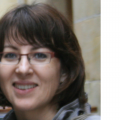
Eleftheria Vellidou
Eleftheria Vellidou is an Electrical Engineer (NTUA, Greece) and concluded her post graduate studies in UMIST, UK. She has spent 20 years in telecom industry’s R&D and from 2009 onwards is a Senior Researcher for the Biomedical Engineering Laboratory (BEL) of ICCS – NTUA (School of Electrical and Computer Engineering) where she has: Coordinated Marie Curie Research Projects Served as Technical Manager in Research projects Prepared and submitted proposals for all domains of European (including European Space Agency) and National Research calls. Led the participation of BEL - ICCS in research projects in ICT, Health, IMI, PSP, COST, EUREKA, INTERREG and Security domains. Her research interests include digital signal processing, machine and deep learning in biomedical engineering, in silico modelling, affective computing and neuroscience in general. She is also active in publishing her work and has served as a reviewer and guest editor in numerous scientific journals.
Summary
Conclusions sent by the direction of the Summer Course
Sustainable development goals
Agenda 2030 is the new international development agenda approved in September 2015 by the United Nations. This agenda aims to be an instrument to favour sustainable human development all over the planet, and its main pillars are the eradication of poverty, a reduction in equality and vulnerability and fostering sustainability. It is a unique opportunity to transform the world up to 2030 and guarantee human rights for all.

3 - Good health and well-being
Guarantee a healthy life and foster the well-being of all people of all ages. Key issues: universal healthcare coverage, sexual and reproductive health, reduction in the number of road accident casualties, pollution and chemical products, reduction in maternal and neonatal mortality, the end of epidemics such as AIDS, combating hepatitis and other water-borne diseases, drug and alcohol prevention, control of tobacco.
More information